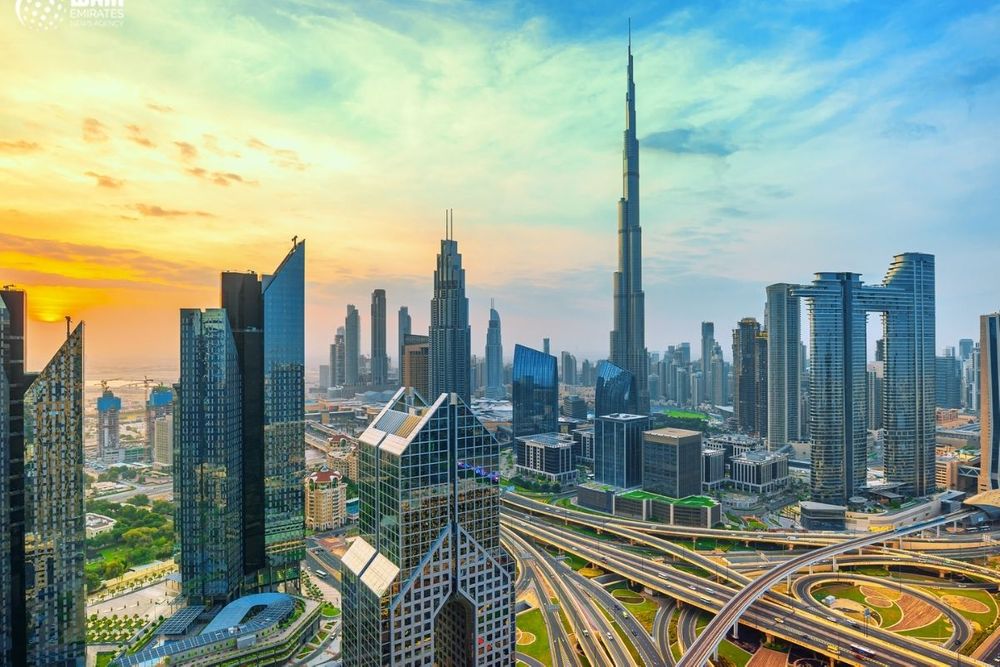The UAE's economic growth is predicted to accelerate this year compared to 2021, growing at 4.6per cent in 2022 against 2.6per cent in 2021.
The UAE will benefit from higher oil prices and a strong rebound in the non-oil sector, World Bank said in its latest report.
The World Bank growth forecast is higher than the UAE Central Bank's projection of 4.2per cent growth for 2022.
The Central Bank has projected five per cent growth for the oil sector and 3.9per cent for the non-oil sector.
Earlier, the International Monetary Fund had projected that the UAE's economy would grow more than three per cent this year and hover around the same levels into 2026.
In addition to higher oil prices, non-oil sectors such as travel and tourism, real estate, hospitality, aviation, and manufacturing have been performing better in 2021, especially since the beginning the Expo 2020 Dubai, which has been a major driving force for the country's economic growth in the last quarter.
Oil prices steadily increased most of the last year, rising from $53 a barrel on January 12, 2021, to $82 a barrel on Tuesday. The prices rose on Tuesday on the back of tight supply and hope that the Omicron variant of the coronavirus will not derail the global economic recovery.
The World Bank projected that the growth pace of the UAE economy would slow down next year to 2.9 per cent, in line with the regional economic growth slowdown.
The 'Global Economic Prospects' study forecasted that all the other Gulf neighbouring economies of the UAE would witness acceleration in GDP growth this year, led by 5.3 per cent of Kuwait, 4.9 per cent in Saudi Arabia, 4.8 per cent in Qatar and 3.4 per cent in Oman. Bahrain is the only exception where GDP growth will slow down marginally to 3.2 per cent in 2022.
World Bank said,
"As contact-intensive sectors recover and oil production cuts wane and supported by tailwinds of a generally accommodative policy environment, growth in the Middle East and North Africa (Mena) is expected to accelerate to 4.4 per cent in 2022, an upward revision from June 2021, and moderate to 3.4 per cent in 2023. The gap in average per capita income between Mena and advanced economies is projected to widen during the forecast horizon."
The Mena region experienced a strong economic recovery in the second half of 2021, bringing output back to its pre-pandemic level in some economies. Economic performance has been uneven across the region because of differences in the severity and effects of the pandemic.
Global growth to decelerate
World Bank said the global economy is entering a pronounced slowdown amid fresh threats from Covid-19 variants and a rise in inflation, debt, and income inequality that could endanger the recovery in emerging and developing economies.
It is projected that the global growth is expected to decelerate markedly from 5.5 per cent in 2021 to 4.1 per cent in 2022 and 3.2 per cent in 2023 as pent-up demand dissipates and as fiscal and monetary support is unwound across the world.
Growth in advanced economies is expected to decline from 5 per cent in 2021 to 3.8 per cent in 2022 and 2.3 per cent in 2023. In emerging and developing economies, however, growth is expected to drop from 6.3 per cent in 2021 to 4.6 per cent in 2022 and 4.4 per cent in 2023.
Mari Pangestu, managing director for development policy and partnerships at World Bank, said,
"The choices policymakers make in the next few years will decide the course of the next decade. The immediate priority should be to ensure that vaccines are deployed more widely and equitably so the pandemic can be brought under control... In a time of high debt, global cooperation will be essential to help expand the financial resources of developing economies so they can achieve green, resilient, and inclusive development,"
News Source: Khaleej Times









